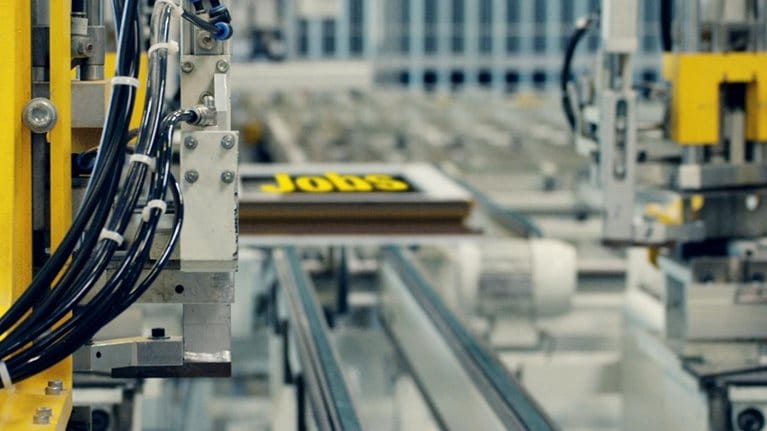Other videos in this series include:
- Why simple fixes don’t work anymore
- An interview with Mother Nature
- Why Thomas L. Friedman is optimistic
- Lifting people back into the middle class
- The three climate changes
Interview transcript
Thomas L. Friedman: The way I think of it, James, is technology moves up in steps. We went from mainframe to PC. That was a big step. What happens is each step of the new technology proliferates, creates new capabilities, and produces the next step. And I think the step around 2000 was biased toward connectivity. There’s suddenly all this cheap fiber optics, satellites, and wireless coming together. It created a platform where more people than ever could compete, collect, and collaborate for less money and more ways from more places than ever before.
I came along and gave it a name. I said it feels like the world is flat. And the reason I said that was because people were able to touch people they could never touch before. I call my mom in Minneapolis and she tells me I’m interrupting her because she’s playing bridge on the internet with someone in Siberia. And people could touch you in ways they never could before.
Connectivity became fast, virtually free, easy for you, and ubiquitous. That set of technologies scaled. And I would argue they then produced the next step up, which was around 2007, which of course was kicked off with the emergence of the iPhone and that suite of technologies which included the iPhone, cloud, big data, and the beginnings of artificial intelligence (AI).
What that step was about, I would argue, was complexity. What happened in 2007 was that complexity became fast, virtually free, easy for you, and invisible. Together all those technologies allowed us to abstract away so much complexity in so many things we never imagined.
James Manyika: What’s an example of that?
Thomas L. Friedman: I could go on my iPhone and now with one touch, I could page a taxi, direct the taxi, pay the taxi, rate the taxi, and be rated by the taxi. All with one touch. We abstracted away all that complexity.
Now, the third step—which I think we’re in the middle of right now—is that the world has gone from flat, to fast, to deep. It’s all what you can do now with no touch. Okay? It’s, “Siri, give me all of James’s latest articles.” No touch at all.
Would you like to learn more about the McKinsey Global Institute?
I’ve been traveling a lot of places, and people all say, “Hey, are you working on a new book?” And I say, “Well, I just wrote a book about 2007, which was about the three largest forces in the world: the market—globalization; climate—Mother Nature; and Moore’s law—technology. All accelerating. I don’t have three new forces to tell you about.”
In thinking about that, I realized that what’s happened since 2007 is not that three new forces have manifested. It’s that these three forces have gone deep. Now they’ve gone really deep. And what’s happening now is they’re all going fast. The connectivity has gotten even more intense. The ability to abstract complexity away has gotten even more rich. And we’re taking them both deeper into the economy, so more people, companies, and places can participate in it.
Since technology keeps moving up in steps, now I’m thinking, “What’s the next step, baby?” From flat, to fast, to deep, I think the next step is psychic. I now know your whole psychograph from your phone, James. I will just push you your groceries. Push you the supplies you need. Push you the information you need.
I think I could already see the step after that. It would be called genomic. I would have a watch or smart clothes on you that I can actually read your human genome. I can tell you what health, what drugs you need to buy, what supplies you need to buy. My neurons will connect with your genome, basically. Walmart tells you that we know, given your genome, these are the foods you should buy, and these are the health aids you need. And I think that’s roughly where we’re going, from flat, to fast, to deep, to psychic, to genomic.
James Manyika: Let’s stay with the psychic, or the AI portion of that. We’ve been doing quite a lot of research on the impact of AI. And what’s striking about that is that clearly businesses and individuals will benefit from the psychic when these technologies can deliver us and help us do things that we wouldn’t do ourselves or we wouldn’t even know how to do ourselves. It also seems as if the economy itself would benefit. Because as companies become more productive, as the economy becomes more productive, that actually helps the economy in terms of driving economic growth. I think the big question for many people comes down to how we think about the ethics of these technologies, and, you know, the misuse concerns about those kinds of psychic or AI-based technologies.
Watch the full interview, “Thomas L. Friedman and James Manyika: The world’s gone from flat, to fast, to deep.”


